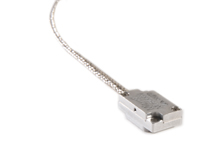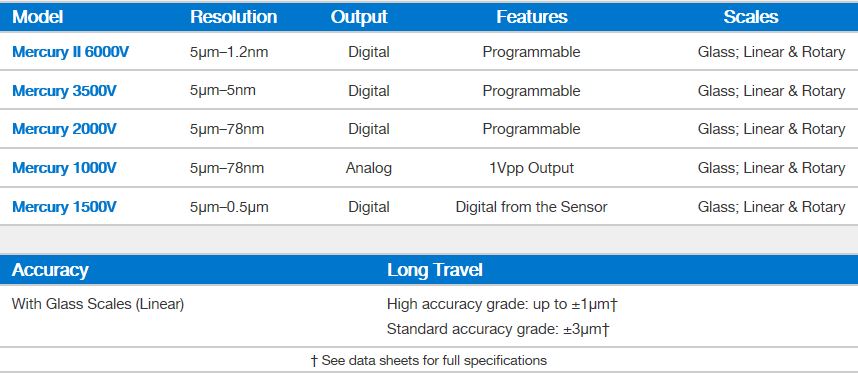Please be aware we use cookies to make your experience better. A cookie is a piece of data stored on a visitor's hard drive to help us improve your access and identify repeat visitors. Cookies can also enable us to track and target the interests of our users to enhance the experience on our site. Usage of a cookie is in no way linked to any personally identifiable non-public information. Learn more.
Vacuum Compatible Encoders
High Vacuum Encoders from MicroE Systems are incremental encoders with small vacuum-rated sensors for motion control applications operated in a vacuum. Mercury™ and Mercury II™ vacuum encoders are specified in a wide range of applications due to their combination of performance, small size, and high vacuum rating. Choose from models with programmable digital output, analog output, or digital output right from the sensor, all constructed using vacuum-compatible materials rated up to 10-8torr. All sensors can be used with linear, rotary and arc segment scales.
With sensors only 8.2mm tall, capable of resolutions up to 1.2nm and cyclical error of ±20nm, unsurpassed motion system performance is achieved in the most compact vacuum applications. Plus, thermal effects are minimized due to the low power consumption of Mercury encoder sensors — only 0.25W for most models. All models perform at 10-8 torr with negligible outgassing. Bake out is rated at 150°C for 48 hours. And Mercury and Mercury II vacuum encoders perform in high magnetic field environments.
Vacuum-compatible linear and rotary glass scales are available in lengths from 13mm to 2m, and diameters up to 121mm. Rotary glass scales are available with or without hubs, and in arc segments.
Features:
- Linear or rotary

- Resolutions from 5µm to 1.2nm linear, 6k to 268M CPR rotary
- Measuring lengths up to 2m using glass scales
- Accuracy up to ±1µm
- Digital, analog, or high-speed serial output
- Rated up to 10-8 torr
- Broadest Alignment Tolerances: You can align the Mercury sensor in under 30 seconds
- Optional software for setup, data plots, diagnostics, and programmable features (programmable models)

